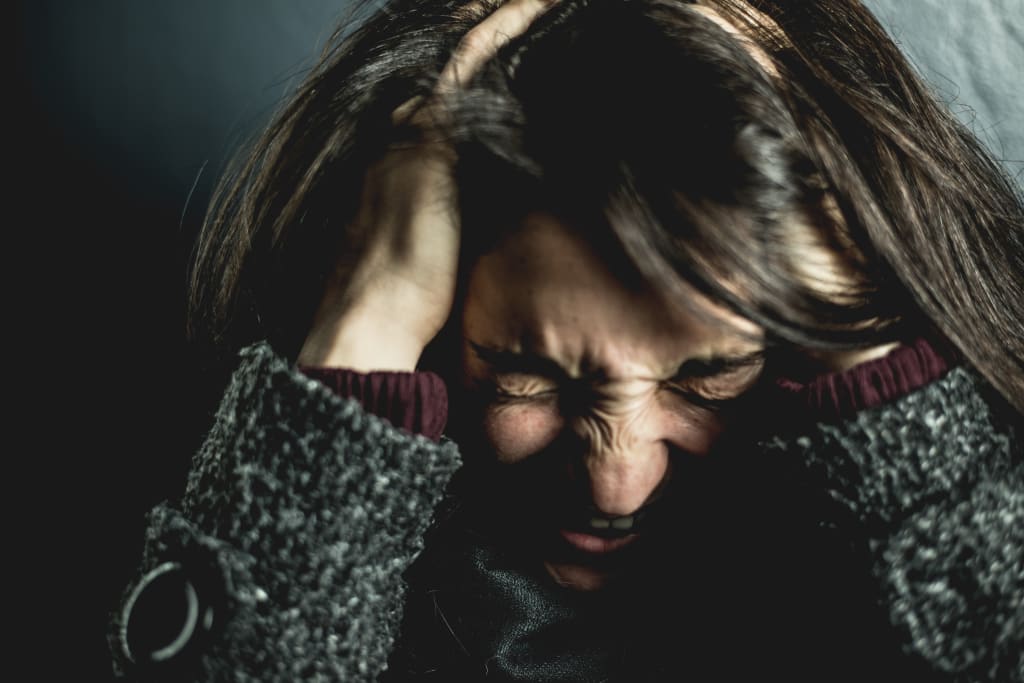The Most Effective Method To Deal with Anxiety 5 Ways
“I think that there's hope for everybody, and we just have to figure out how to help people feel ultimately empowered and safe.”

The Most Effective Method To Deal with Anxiety 5 Ways
Anxiety medicines incorporate physician-endorsed meds, psychotherapy, contemplation, and exercise. Specialists suggest a blend of these techniques. Nervousness is normal when confronted with difficult choices or life changes, yet when that tension obstructs everyday living, it turns into a condition.
As per the National Alliance on Mental Illness, around 40 million American individuals experience the ill effects of uneasiness. Accordingly, uneasiness issues are the most incessant mental affliction in the United States.
Uneasiness issues are portrayed by sensations of nervousness that stretch out past normal worries, for example, inconveniences at work or everyday life with life changes. Individuals experiencing tension problems might encounter persistent, uncontrolled fear that slows down their everyday existence.
Uneasiness can likewise prompt other medical problems or practices that are negative to one's wellbeing. Restless individuals, for instance, may encounter restlessness, constant uneasiness, or stomach issues. Smoking and vaping are unexpected issues for people who experience the ill effects of uneasiness, and both of these exercises are destructive to one's wellbeing.
As per the National Institute on Drug Abuse, individuals with tension and other mental issues smoke at two to multiple times the pace of everybody. As per a 2014 examination headed by Sharon Cummins of the University of California, San Diego School of Medicine, they are likewise two times as prone to have utilized e-cigarettes.
"In my work, I'd gauge 40-ish percent of individuals have a tension issue or ailment," said Stacy O'Mara, an affirmed emotional wellness advisor and psychotherapist. "That generally proposes [these individuals] aren't getting sufficient rest." "When they're in danger of maybe losing an employment, losing a life partner," she says, treatment is shown.
“I think that there's hope for everybody, and we just have to figure out how to help people feel ultimately empowered and safe.”
----Stacy O’Mara, Licensed Mental Health Counselor and Psychotherapist
Symptoms of anxiety
Anxiety might incite a wide scope of side effects. It might affect how you feel genuinely, intellectually, and typically.
It's not generally easy to tell whether stress is making you feel or act unexpectedly.
The Fit of anxiety manifestations
If you experience sudden, intense anxiety and fear, it might be the symptoms of a panic attack. Other symptoms may include:
- a rapid pulse
- feeling dazed, dazed, or faint
- feeling that you're losing control
- sweating, trembling or shaking
- shortness of breath or breathing very quickly
- a tingling in your fingers or lips
- feeling sick (nausea)
A panic attack usually lasts 5 to 30 minutes. They can be very frightening, but they're not dangerous and should not harm you.
Causes incorporate hereditary, natural, and awful factors.
Mental health experts are uncertain about what causes tension. Notwithstanding, research shows that a mix of factors might add to the disorder. Hereditary qualities, natural tensions, awful encounters, and hidden clinical problems are instances of these.
Environment and Genetics
Hereditary qualities are one gamble factor for tension. As per the Cleveland Clinic, studies have uncovered that uneasiness issues might be acquired since they might run in families.
Stresses from not having central necessities tended to are among the natural causes, notwithstanding how a portion of these essential prerequisites might be passed an individual's control.
"At the point when I don't have the basics - food, drink, wellbeing, and security - I'm setting myself up for stress," O'Mara clarified. "Being in a consistent condition of concern will be a trailblazer in the event that I'm working the lowest pay permitted by law work, don't have medical coverage, and have two children."
When the body is subjected to prolonged or severe stress, the chemistry of the brain might alter, making an individual more vulnerable to anxiety disorders.
Minority groups, such as the LGBTQ+ community, experience ongoing stress from prejudice and discrimination, a phenomenon known as minority stress. According to the American Psychiatric Association, LGBTQ+ people are 2.5 times more likely to suffer from anxiety and despair and to engage in drug abuse.
ANXIETY AND THE LGBTQ+ COMMUNITY
When compared to heterosexuals, LGBTQ+ people are 2.5 times more likely to suffer from anxiety and other mental health issues.
American Psychiatric Association is the source. American Psychiatric Association
What should be done to lighten stress, dread, and frenzy
DO-
✓ Discuss your feelings with a friend, family member, health professional, or therapist.
✓ Figure out how to rest assuming you're experiencing difficulty dozing.
✓ Running, strolling, swimming, and yoga are movements of every kind that could assist you with unwinding.
✓ Utilize breathing procedures to unwind.
✓ Eat a nutritious eating routine with regular suppers to keep up with your energy levels.
✓ Think about peer help, in which individuals use their encounters to help each other. On the Mind site, you might study peer help.
✓ Pay attention to free sound aides about emotional wellness.
DON'T
✖ Try not to focus on the things you can't alter; instead, use your time and energy to aid yourself in feeling better.
✖ Make an effort not to do everything at the same time - Set minuscule objectives that you can undoubtedly achieve.
✖ Do not avoid circumstances that make you uncomfortable; instead, progressively increase the amount of time you spend in frightening situations to gradually diminish anxiety.
✖ Make every effort not to let yourself realize that you're isolated from the rest of the world; many individuals experience anxiety or fear at some point in their lives.
✖ Make an effort not to use alcohol, cigarettes, gambling, or pharmaceuticals to relieve anxiety, since they may all contribute to poor mental health.
5 Ways to Cope With Anxiety
Everyone experiences restlessness or anxiety from time to time. When you're put to the test, feelings like these might arise. They may occur when the tension is high enough for things to go along admirably. They might occur when you are afraid of making a mistake, appearing bad, or being condemned.
In most cases, these conditions are not dangerous. The cerebrum, on the other hand, responds as though they are.
For example, you may have anxiety before taking huge examinations or tests. When it's your turn to speak in class, you could feel antsy. Although these feelings might be unsettling, you can adjust.
It's better to address anxiety-provoking situations rather than avoid them. You may be amazed at what you are capable of. Here are five strategies for learning to manage anxiety:
1. Start with a ‘growth’ mindset: Some people are stuck in their ways. "This is how I am," they could think. I get nervous before giving a presentation in class. As a result, I don't raise my hand." People with a fixed mindset believe that nothing can change. They believe they are who they are because of who they are. However, research has shown that you can train your brain to respond in different ways. This is something that people with a development mentality are aware of. They understand that with work and practice, they can improve at almost everything. Dealing with anxiety is one of them.
2. Notice what anxiety feels like for you: Get to know the body sentiments that are essential for nervousness. Portray them to yourself. When you're restless, do you feel 'butterflies'? Sweat-soaked palms? Flimsy hands? A quicker heartbeat? Realize that these sentiments are essential for the body's ordinary reaction to a test. They're not destructive.
They blur all alone. Next time they occur, attempt to see the sentiments without getting vexed that they're there. Acknowledge them. Leave them alone there. You don't need to drive them away. Yet, you don't need to offer them all of your consideration by the same token. Check whether you can leave them alone behind the scenes
3. Breathe: Take a couple of deep breaths slowly. You may take a four-count breath in and a six-count breath out. You could count four or five breaths with your fingers. Anxiety does not go gone by taking a few deep breaths. However, it is possible to lessen it. It can assist you in paying less attention to nervous sensations and thoughts. It can assist you in resetting and preparing to go on.
4. Talk yourself through it: It's natural to tell yourself things like "I can't do this" when you're feeling restless. "Can you imagine what would happen if I screwed this up?" Instead, tell yourself something that will give you the confidence to handle the second with aplomb: "I can do this." Alternatively, "It's fine to be agitated. In any event, I am capable of doing so."
5. Face the situation — don’t wait for anxiety to go away: You could believe that you'll put off chatting in class until you're no longer bothered by it. However, this is not the case. Confronting your apprehension will help you manage it. This is referred to as openness. It takes time and perseverance to figure out how to cope with anxiety.
Most of it comes down to practise and a willingness to handle situations that cause immediate anxiety. It all starts with a small step forward. The more you practise, the better at managing tension you'll become. Using these five phases can help you seek some guidance and support from a parent, a school adviser, or an expert. Also, if your stress is out of control or impossible to cope with, notify a parent or another responsible adult. You may learn how to manage anxiety with the correct attention and support.
About the Creator
Oliver Smith
After all, the first thing you should do after finishing a good book is spill the tea with someone who knows what they're talking about.Start a Book exchange inside your club.






Comments
There are no comments for this story
Be the first to respond and start the conversation.